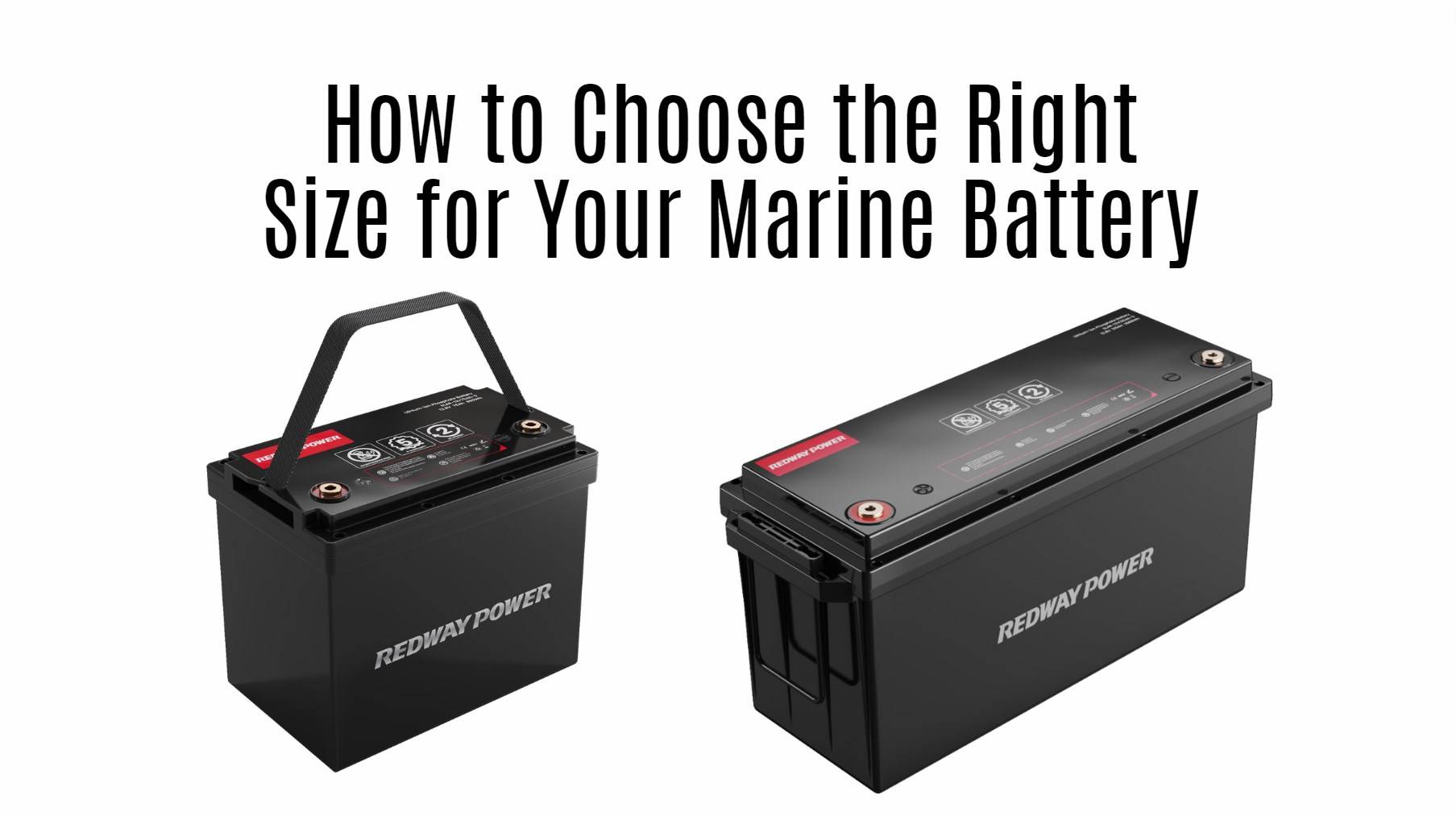Choosing the right size for your marine battery is crucial for ensuring reliable power for your boat’s electrical systems. Understanding the different types of batteries available, their sizing, and maintenance practices will help you make an informed decision that enhances performance and longevity.
What types of marine batteries are available?
Marine batteries come in several types, each designed for specific applications:
- Flooded Lead-Acid Batteries: Traditional batteries that require maintenance and are cost-effective.
- AGM (Absorbed Glass Mat) Batteries: Sealed, maintenance-free batteries that offer better vibration resistance.
- Gel Batteries: Similar to AGM but use a gel electrolyte; also maintenance-free.
- Lithium-Ion Batteries: Lightweight and long-lasting, these batteries provide high energy density and fast charging capabilities.
| Battery Type | Characteristics |
|---|---|
| Flooded Lead-Acid | Requires maintenance; cost-effective |
| AGM | Maintenance-free; better vibration resistance |
| Gel | Maintenance-free; stable discharge |
| Lithium-Ion | Lightweight; long lifespan; fast charging |
How do you determine the right size for your marine battery?
To determine the right size for your marine battery, follow these steps:
- Identify Your Power Needs: Calculate the total wattage required by all devices on board.
- Consider Usage Duration: Determine how long you need to run these devices without recharging.
- Select Appropriate Capacity: Choose a battery with sufficient amp-hour (Ah) capacity to meet your needs.
For example, if your devices require 500 watts and you want to run them for 5 hours, you’ll need:
For a 12V system:
| Power Requirement | Calculation |
|---|---|
| Devices’ Total Watts | 500W |
| Usage Duration | 5 hours |
| Required Capacity | ~208Ah |
What factors should you consider when selecting a marine battery?
When selecting a marine battery, consider these critical factors:
- Battery Type: Choose based on application (starting vs. deep cycle).
- Capacity Needs: Ensure sufficient capacity based on power requirements.
- Weight and Size: Make sure it fits in designated compartments without exceeding weight limits.
- Environmental Conditions: Consider how temperature and humidity may affect performance.
Understanding these factors will help ensure that you select a battery that meets both operational requirements and physical constraints.
How do different battery chemistries affect performance?
The chemistry of a marine battery significantly influences its performance characteristics:
- Flooded Lead-Acid: Reliable but requires maintenance; affected by temperature extremes.
- AGM Batteries: Better resistance to vibration and temperature fluctuations; no maintenance required.
- Gel Batteries: Safe in enclosed spaces but can be less efficient in cold temperatures.
- Lithium-Ion Batteries: High efficiency, lightweight, and excellent performance across temperature ranges.
Each chemistry has its pros and cons, making it essential to choose one that aligns with your specific boating needs.
| Chemistry Type | Advantages | Disadvantages |
|---|---|---|
| Flooded Lead-Acid | Cost-effective; widely available | Requires maintenance |
| AGM | Maintenance-free; good vibration resistance | Higher initial cost |
| Gel | Safe in enclosed spaces | Less efficient in cold conditions |
| Lithium-Ion | Lightweight; long lifespan | Higher upfront cost |
What are the standard sizes for marine batteries?
Marine batteries come in standard sizes known as “groups,” which indicate their physical dimensions:
- Group 24: Commonly used in smaller boats, typically offering around 70-85Ah.
- Group 27: A popular choice for medium-sized boats with capacities around 80-100Ah.
- Group 31: Suitable for larger applications, providing approximately 100-130Ah.
Selecting the appropriate group size ensures that the battery fits securely in its designated compartment while providing adequate power.
| Battery Group Size | Typical Capacity (Ah) |
|---|---|
| Group 24 | 70 – 85 |
| Group 27 | 80 – 100 |
| Group 31 | 100 – 130 |
How can you maintain your marine battery for optimal performance?
Proper maintenance is essential to extend the life of your marine battery:
- Regular Inspections: Check terminals for corrosion and ensure connections are tight.
- Water Levels (for flooded batteries): Regularly check and top off with distilled water as needed.
- Charging Practices: Use appropriate chargers designed for your specific type of battery to avoid overcharging or undercharging.
- Seasonal Care: Remove batteries during off-seasons, store them in a cool, dry place, and keep them charged.
Implementing these practices will help ensure that your marine battery performs optimally throughout its lifespan.
Industrial News
Recent advancements in marine battery technology have focused on improving energy efficiency and reducing environmental impact. Manufacturers are increasingly investing in lithium-ion technology due to its superior performance characteristics compared to traditional lead-acid options. As boating enthusiasts seek more sustainable energy solutions, innovations continue to emerge that enhance safety and reliability across various applications.
Redway Power Insight
“Choosing the right size and type of marine battery is crucial for ensuring optimal performance on the water,” states an expert at Redway Power. “By understanding how different constructions impact functionality, users can make informed decisions that enhance their overall experience.”
FAQ Section
- How often should I check my marine battery?
- Inspect regularly during boating season and before storage periods to ensure optimal performance.
- Can I mix different types of marine batteries?
- It’s best not to mix different types as they have different charging profiles which can lead to inefficiencies.
This comprehensive guide explores how to choose the right size for your marine battery while highlighting essential considerations that enhance overall boating experiences.















